Monday October 30th
SCNA re-cap and Google/ Udacity Scholarship!
I got a Google Developer Challenge Scholarship!
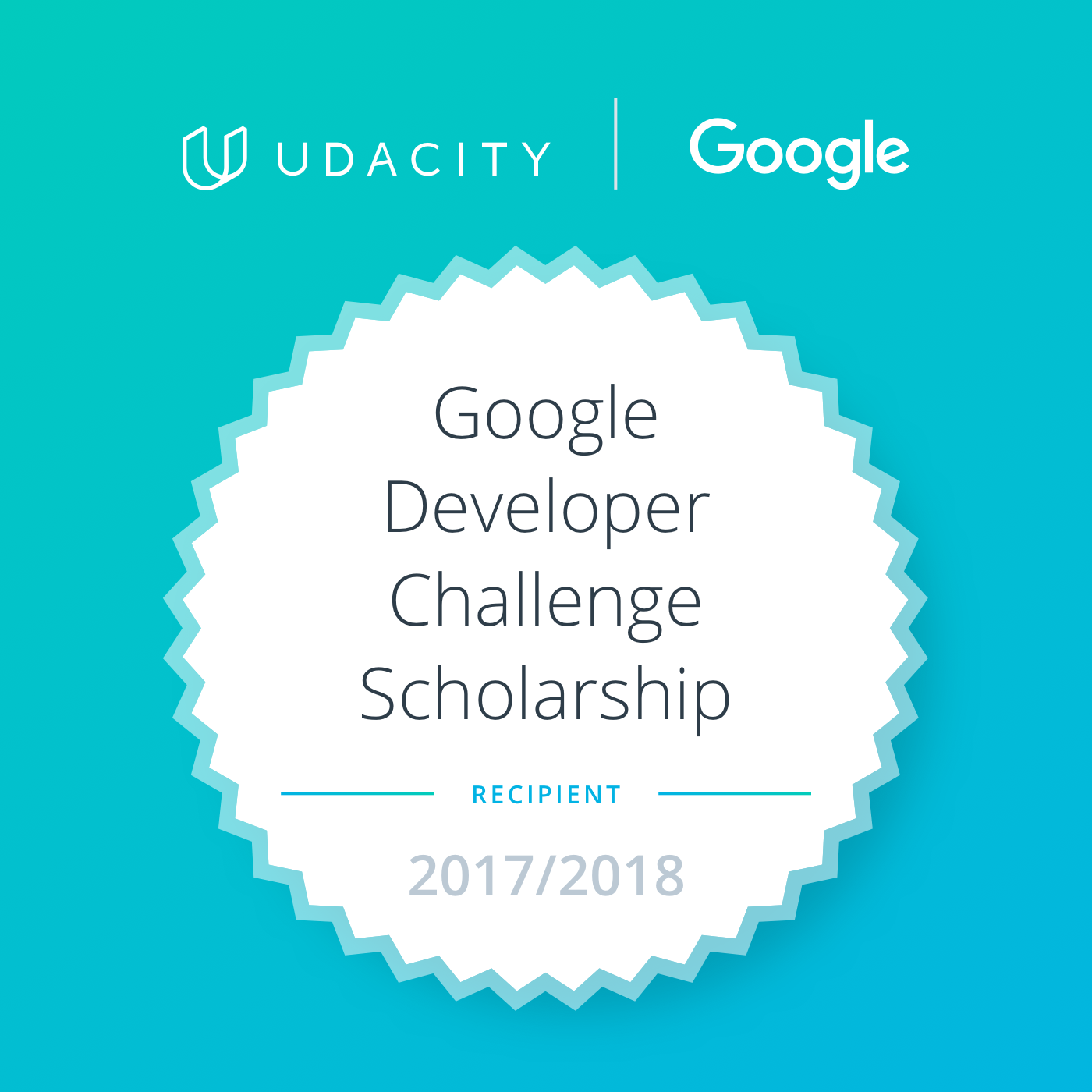
- I received a wonderful email this morning which read
We are excited to offer you a Google Developer Challenge Scholarship to the Front-End Web Developer track. We received applications from many talented and motivated candidates, and yours truly stood out.
What this means
-
I’ll be starting a brand, new shiny Nanodegree and learning some JQuery and JavaScript over the next few months.
-
Yes, my parents and teachers are very happy for me :)
SCNA
- I was quite fortunate to have recevied a Grant to attend this year’s SCNA!
-
It was a wonderful experience, and there were so many Functional Programmers!
-
I’ve been told that any conference that focuses on Craftsmanship is sure to draw a fair number! I was not disappointed! I would definitely return to this conference!
- We were actually given the opportunity to learn from each other and code, which was worth its weight in gold for me in terms of the experience! Thank you, SCNA!
Friday/ Saturday = SCNA
- So SCNA is the Software Craftsmanship of North America conference
- It was originally held in Chicago, but for the past two years (now in its 9th year) it has been held in LA.
Friday
-
Friday was a series of presentations from various speakers.
-
Phil spoke about Mission Critical systems. He works with embedded medical devices, programming in C++. He also did Haskell for fun as a hobby, but mostly works in Clojure for fun now.
-
He was saying scarily there is a lot of cutting and pasting of code in these systems.
-
Also, for their interviews, about 50% of people fail an interview to add a node to a linked list, which is essentially two lines of code :/
-
He mentioned IEC 62304, which is a Medical Device Software International Standard specification document. His field is quite strict about requiring documentation before implementation, which is actually a bit of an opposite mentality to the software world.
-
He spoke about formal validation by clients -> does a device behave how you’d expect it to behave (if the client doesn’t know software but understands how the device should work). This was really interesting. There are also assumptions with regards to this that a client has.
-
When writing documentation, he said do not define things like “this is a for loop”, but rather, the assumptions made (blah blah is a log of whatever value, defined as, linear relationship, etc).
-
He referenced a book called “Release It! Design and Deploy Production- Ready Software” by Michael T. Nygard
-
Also, Hazard Analysis - evaluating modes of failure your product has experienced, and stress-testing, such as Chaos Monkey/ Chaos Kong, which I’ve already mentioned on this blog (via Netflix)
-
Also, the standardization AAMI TIR32 is a “Medical Device Software Risk Management” document that details all the ways software can break in devices. So that’s a valuable document for their field.
Techniques for Quality
-
Phil deals with C++, so he spoke about immutable data, multiplying by fractions to ensure not dividing by zero, and using generative testing and chaos engineering techniques/ stress testing
-
What is interesting is that in his industry, if your product doesn’t meet FDA standards, the FDA can actually demand that you rent competitors’ products until you fix your product, which is costly.
-
Also, each failure means more regulations
Woody - Mob Programming
-
Advantages: reduces bugs, short feedback group, focus, training happens immediately for junior devs
-
Person with idea takes keyboard
-
Driver takes input from team and turns it into code
-
He spoke about a troubled team that he had been brought in to fix, and they were able to study and practice together. They had daily retrospectives and in the end, were able to go back to the troubled code-base and fix it as a team. Woody’s pretty great. I feel honoured to have done mob-coding with him, even though clumsy Aspie me spilled a little bit of tea on his Mac laptop (and he was so cool about it to boot!). I’m sort of clumsy :/
Sarah/ Bobby
-
Sarah and Bobby are a married couple. Sarah gave a talk on raising their two children and how the couple has been able to integrate Computational Thinking, such as merge sort and thinking computationally into play and learning with their children.
-
Bobby worked at Lockheed, NASA and Thoughtworks, before working at Uptake, which has something like a 2B dollar valuation and grew to about 800 employees in 3 years. He was really into graph theory and structured editors and analyzing code using thing like DSMs (Dependency Structure Matrices). He likes Cytoscape for visualzing and mathematically analyzing relationships in a code-base, so we can start quantifying relationships mathematically. It was starting to remind me a lot of that Clojure/Conj talk I saw on Proto-REPL (I attended that conf before I started blogging).
Elizabeth
- Gave a talk on “is the best software written alone”. The answer is (in her opinion) “No”.
Amanda
- gave a talk on TEAL. Interesting concepts, but I don’t think something like that may necessarily be practical given the structure of some organizations.
Software Jeopardy
- During lunch and before the afternoon session, we had some Software Jeopardy with a panel. They panelists all did really well. Some of those questions were tough, but I got some of the Haskell stuff!
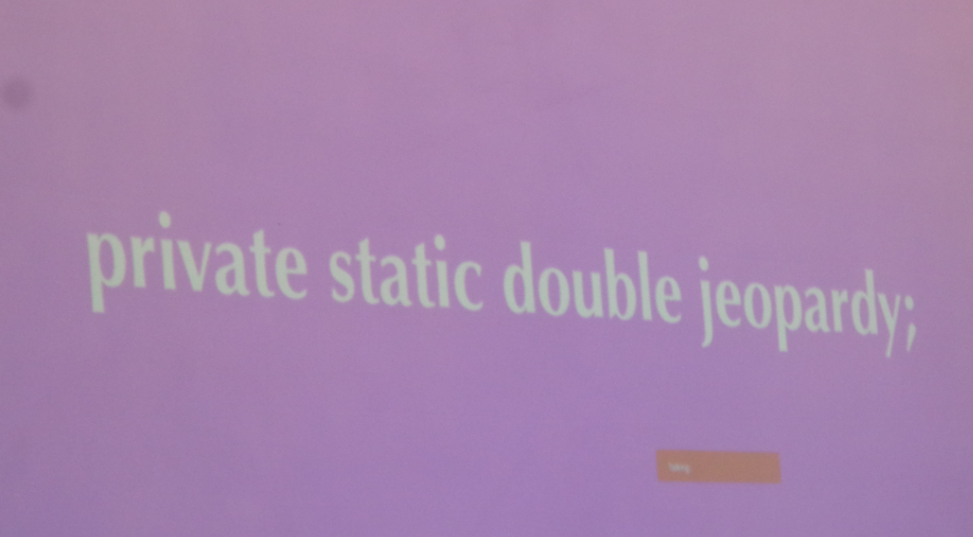
The answer is “Richie Rich Hickey” :)
- It says “This world’s wealthiest little boy, he created Clojure”
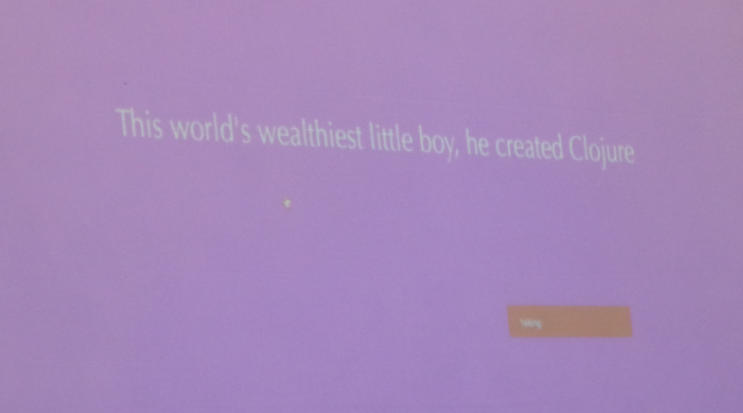
- Categories:
- It’s all Assembly to me
- Movie Titles, Refactored
- Name the Decade
- The Binary World of Sports
- Stupid Acronyms (yes, GNU was one of them!)
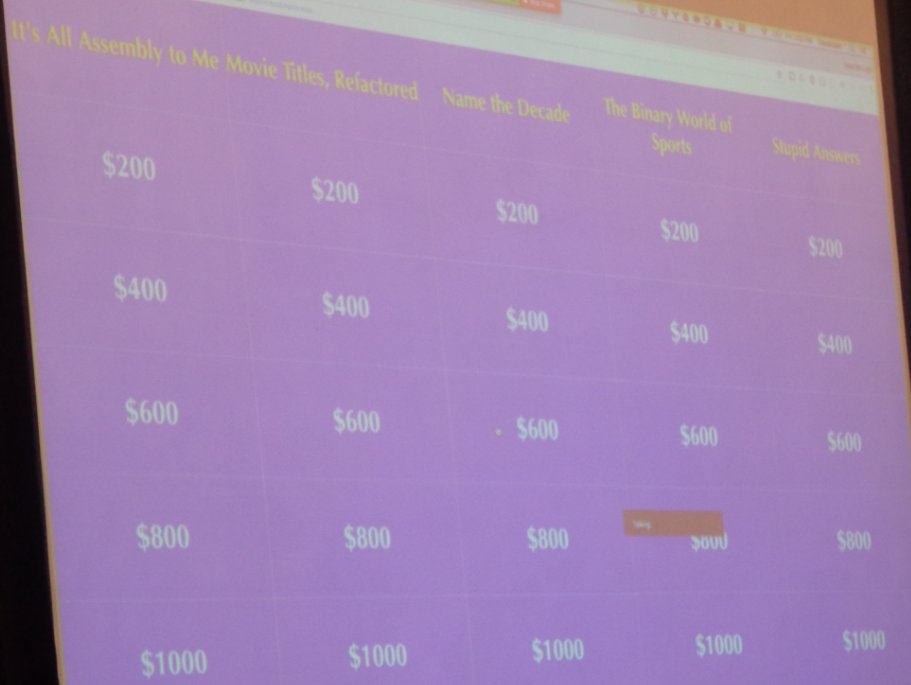
- This is a discontinued programming language created by James Gosling in 1991. It later evolved to become Java.
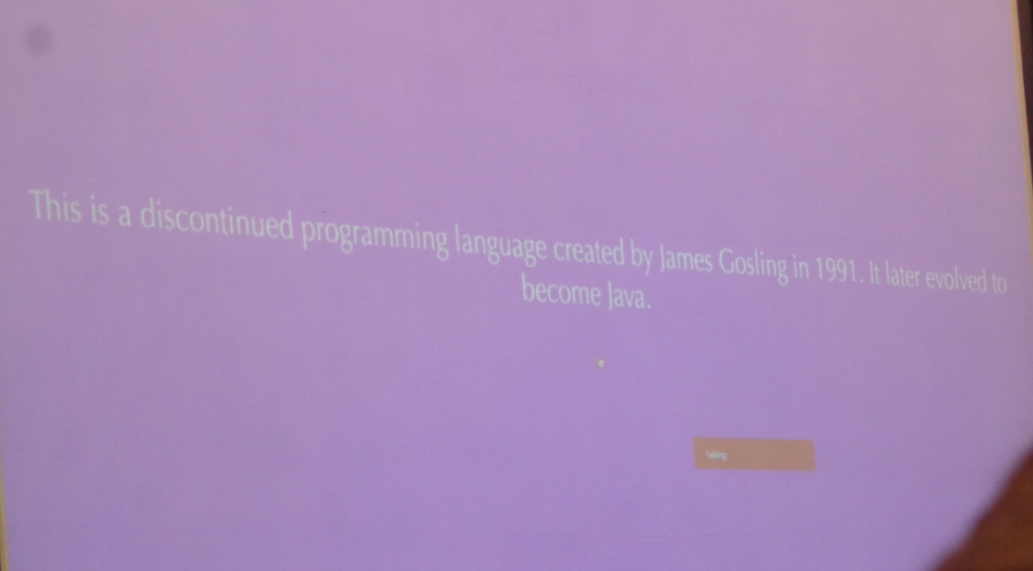
Saturday was a day of code (optional)
- We did pair programming first. I paired with two people; the first of whom was familiar with Ruby. The goal was to solve Conway’s Game of Life.
-
We decided to start with the definition of a Board first.
-
My second partner uses C#, so we got set up on his laptop. I actually liked his set-up a lot. He uses a Mouse, like I do. His IDE also helped us a lot, and even was able to set up unit tests.
- He wanted to start with a more object-oriented approach, by defining tests like checking if a cell has neighbours, and then checking if those cells have neighbours, etc
After lunch (Saturday)
- We did mob programming with Woody.
Mob Programming?
- Yup. There are different definitions, but the simplest involves a group of about five people, and a driver and navigator.
-
The group observes and when asked, can help the navigator, who tells the driver what to do. When navigating, he’s not spitting out code… he’s expressing an idea, such has “I’d like to define what “dead” (as in a dead cell in Conway’s Game of Life) is. If the driver needs help with syntax, etc, he/ she can ask, but typically, the driver does not speak; only the navigator does.
- We used Java to first start writing unit tests. The first was to not use anything but primitives. People then focused on state.
- In the second round, we started over and used a constraint of only functions allowed.
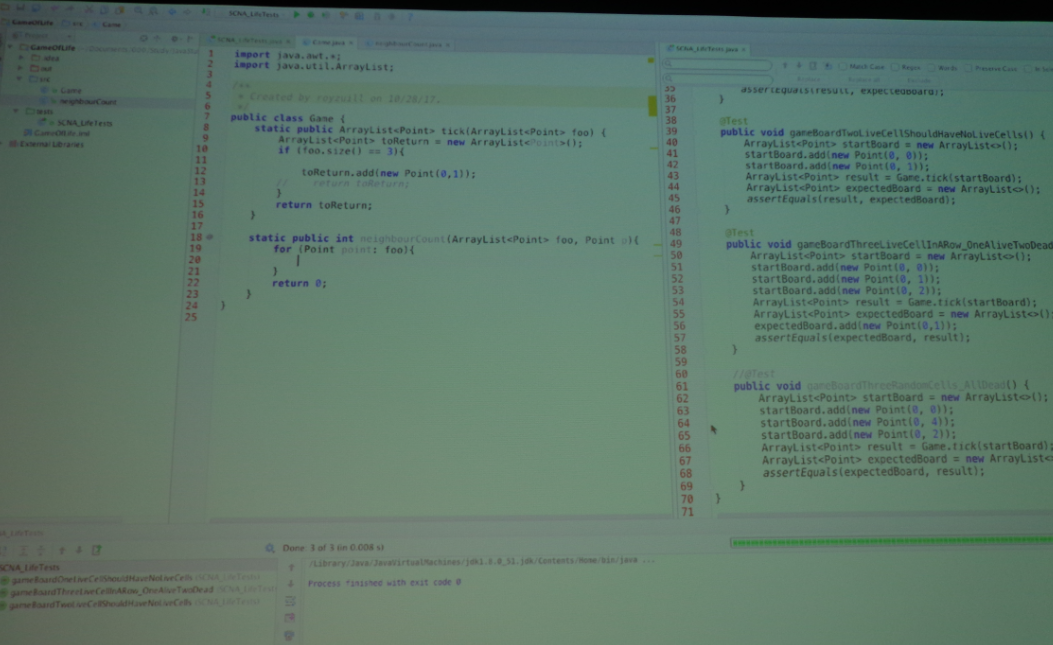
- After that, we used Mocha and Chai to use Node/JS and write unit tests.
- One guy who loves Java said “I’m just going to keep writing Java until the IDE complains”. That was funny! It was nice to see people out of their element.
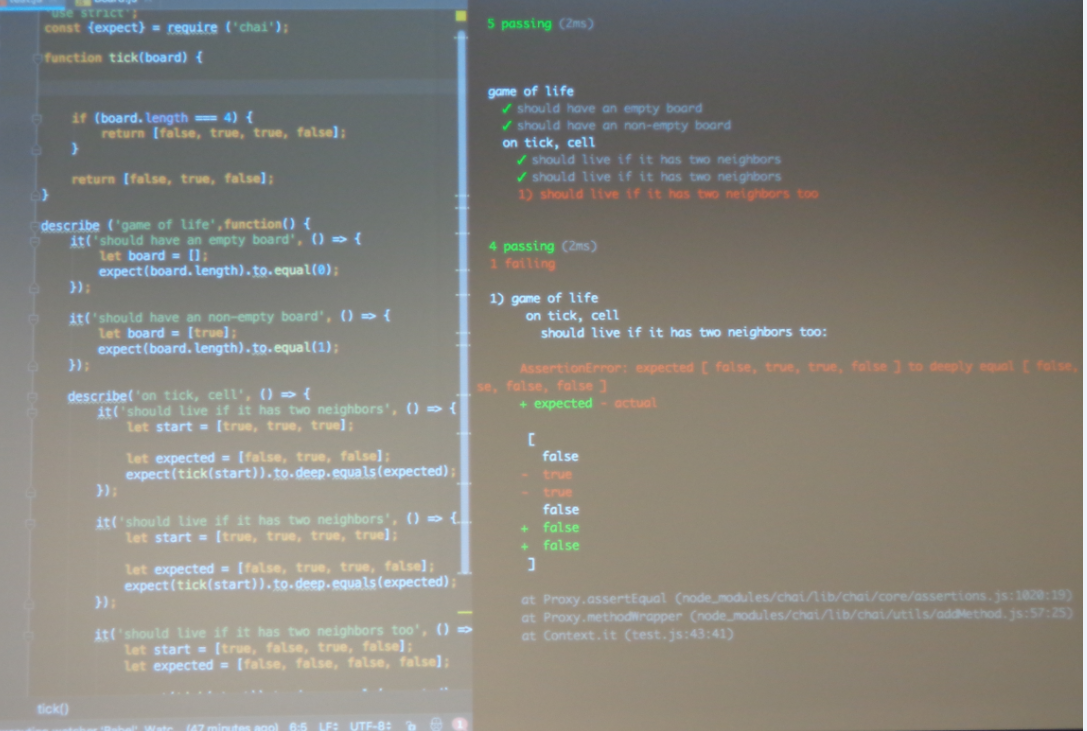
Other General Commentary
- They really went all out in terms of the organization.
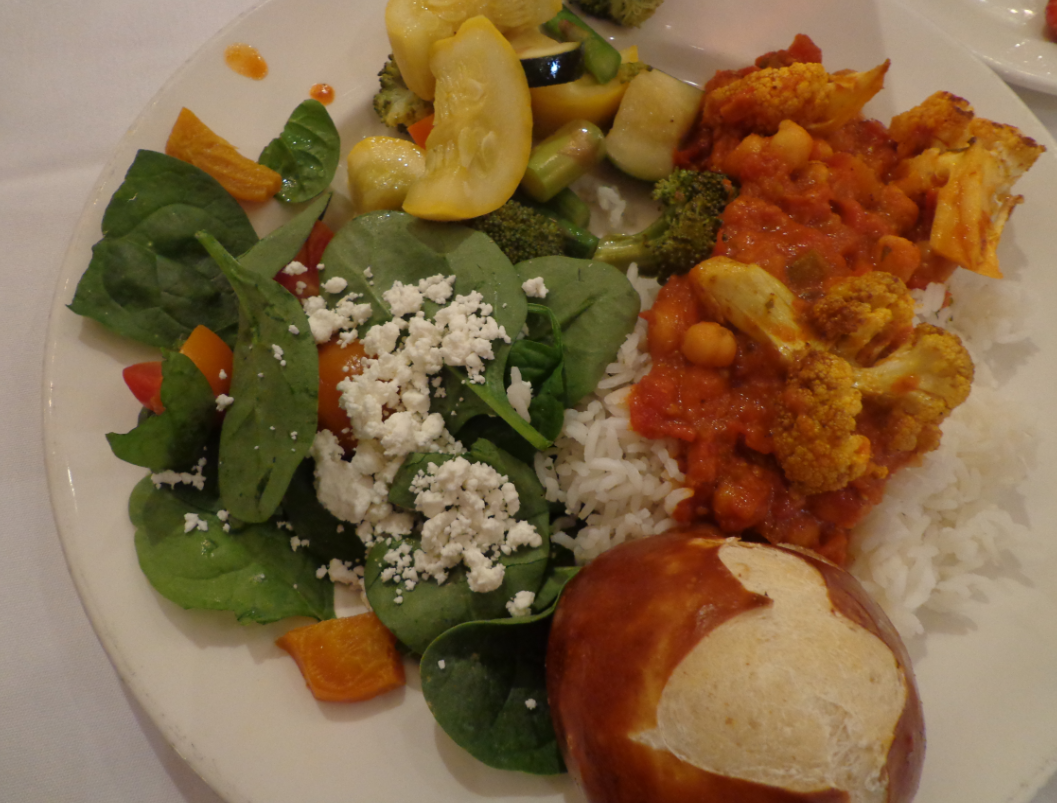
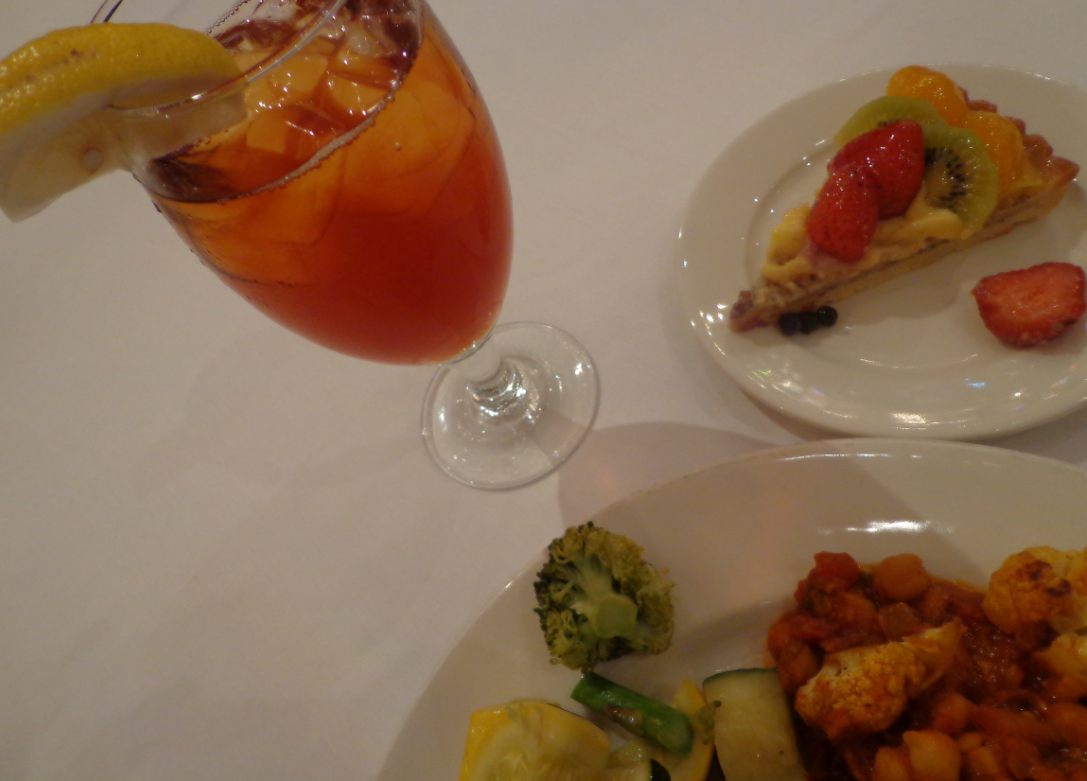
Upcoming
- Finished a coding quiz. I didn’t do at all as well as I would have liked, but it was my first timed quiz, so I can only get better from there, knowing what to expect. Goal: get better
-
Tactic: Do a HackerRank problem a day (at least 5 a week)
-
Finishing up Homework 4 in C++ (done)
-
Start on final project (from 10/30) so you can have a nice, finished portfolio piece in C++
- Getting my Markdown file completed today and finishing up
Python code to wrap up Nanodegree. My Postgres works,
so all is good on that front. We’ll see how it works
with my code (hopefully tonight)
- Markdown is done!
